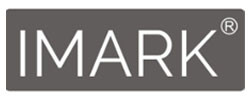How to import mosaic tiles to Qatar & What documents are required?

The Qatari construction market is expected to register a CAGR of 9.6% over the forecast period, 2019-2024. Qatar is expected to be among the fastest-growing global construction markets during the foretasted years, with robust growth forecasts as the government works to meet its significant infrastructure requirements.
As the main player of art mosaic tile supplier from China, we are recently getting more & more inquiry from this area of the mosaic tile. Most of them are the experienced importers and skilful of the local customs clearance work. However, there are not all are experts. Hereby we would like to share our knowledge when you are importing mosaic tile or any kind of goods in Qatar. We hope this article can be helpful for your future work.
All importers are required by law to have an import license.
The Import licenses are issued only to Qatari nationals, or to the Qatari partner in a limited liability partnership and must be registered with the Ministry of Commerce and Industry.
This regulation also applies to wholly foreign-owned entities operating in Qatar.
In order to get your goods cleared from customs zones at ports or land boundaries in Qatar, you must submit a variety of documents,
1, a detailed customs declaration
2, bill of lading
3, certificate of origin
4, pro forma invoice
5, import license.
Information on specific requirements should be obtained from the Customs and Ports General Authority. Inspection of goods is generally conducted at the customs station, or as directed by the Director-General, in the presence of the owner or his representative.
Additional Import Regulations:
Effective April 1, 2011, Qatar Customs imposed the following new rules & regulations for imported shipments heading to Qatar and entering through Doha’s airport and Seaport:
1, Qatar Customs will only accept official invoices,
2, official certificate of origin (COO) & packing lists;
These are now mandatory. Shipment without these documents will not be cleared under any circumstances and shall be returned back to the origin.
It is mandatory to write the HS-CODE of the commodity in the official invoices and COO; otherwise, shipment will not be accepted for clearance.
‘COUNTRY OF ORIGIN’ OR ‘MADE IN’ fields are mandatory for each piece, on materials, and on cartons.
The ‘COUNTRY OF ORIGIN’ OR ‘MADE IN MARK’ details on the shipment should match the information on the official invoice, COO, and on the materials (Any discrepancies will cause the shipment to be returned to the origin).
In Qatar, the letter of credit (L/C) is the most common instrument for controlling exports and imports. When an L/C is opened, the supplier is required to provide a certificate of origin and a certificate from the captain of the ship or from the shipping agency stating that the ship is allowed to enter Arab ports. An Arab Embassy or Consulate or an Arab Chamber of Commerce should notarize both documents in the exporting country.
A letter of credit initiated in Qatar is usually endorsed with transshipment clauses. It is customary in Qatar for importers to build their L/C’s computations on “cost and freight (C&F)” basis, and not C.I.F. Qatari merchants prefer to have insurance coverage provided by local and international insurance companies, to cover damage in transit to the goods covered under the L/C.
If you would like to learn more, please contact us
Recent Posts
-
How to import mosaic tiles to Qatar & What documents are required?
The Qatari construction market is expected to register a CAGR of 9.6% over the forecast period, 201 …26th Dec 2019 -
#26 Weekly Hot Selling Pool Tiles
22nd Jun 2018 -
Top 4 Tips for Mosaic Kitchen Backsplash
Pop to Your KitchenDo you ever look at your kitchen and see room for improvement? Whether in a home …16th Jun 2018
